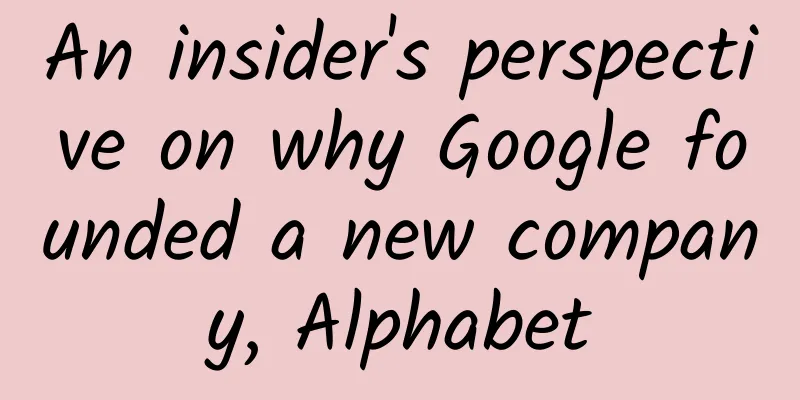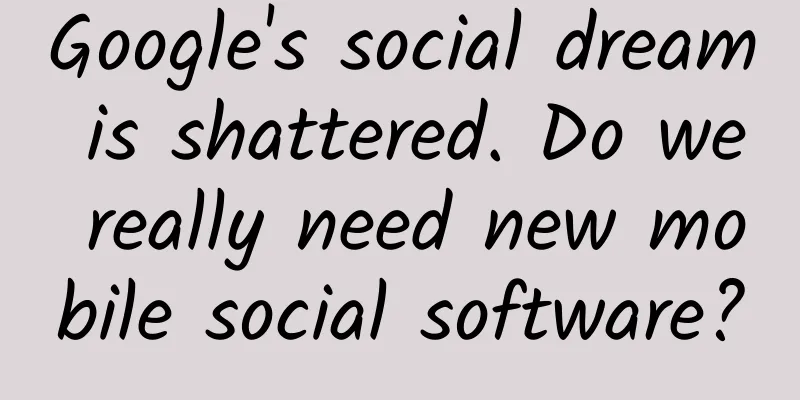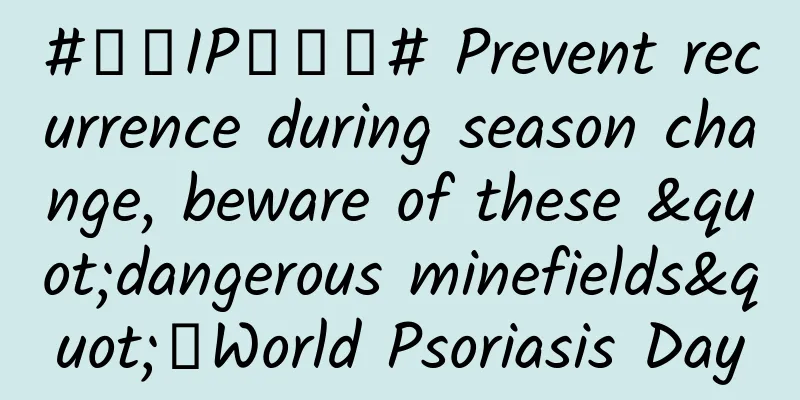An insider's perspective on why Google founded a new company, Alphabet

|
Short version: Alphabet is a parent company established by Google, with Larry Page as CEO and Sergey Brin as chairman of the board. Alphabet will have a series of wholly-owned small companies that are independent according to business lines, such as the current Google, X-Lab, Life Sciences, Ventures & Capital and others. The establishment of this new company is more like an organizational structure adjustment to revamp the relatively bloated Google before, and to make the responsibilities and achievements of each business unit (subsidiary) more clear. Detailed answer: When I woke up yesterday morning, my Facebook news feed was flooded with Alphabet news. Various Bay Area colleagues expressed their opinions on it and shared media reports. I read Google's official explanation several times and found it very interesting. Alphabet's official website: https://abc.xyz/ , the page looks very simple, just a blog post: This article fully introduces what Alphabet is, why Alphabet was established, how Alphabet is organized, and where it will go in the future. I have specifically selected a few important paragraphs to interpret: 1. What is Alphabet? Our company is operating well today, but we think we can make it cleaner and more accountable. So we are creating a new company, called Alphabet. I am really excited to be running Alphabet as CEO with help from my capable partner, Sergey, as President. What is Alphabet? Alphabet is mostly a collection of companies. The largest of which, of course, is Google. This newer Google is a bit slimmed down, with the companies that are pretty far afield of our main internet products contained in Alphabet instead. What do we mean by far afield? Good examples are our health efforts: Life Sciences (that works on the glucose-sensing contact lens), and Calico (focused on longevity). Fundamentally, we believe this allows us more management scale, as we can run things independently that aren't very related. When you see "Our company is operating well today, but ...": I think smart people should understand that he means "the situation is not good" (~ ̄▽ ̄)~ The following paragraph states the original intention of establishing Alphabet: "Making the company cleaner and more accountable". In short, Google is becoming more and more bloated, and there will undoubtedly be more and more office politics. In this case, the company established a new parent company called Alphabet, which is a group company that includes a series of wholly-owned subsidiaries that are independent according to business, such as Google, X-Lab, Life Sciences (glucose-sensing contact lenses), Calico (research on how to live forever), and Ventures & Capital (Google Ventures) he mentioned later. Let me make an inappropriate analogy. The establishment of this new company is similar to Tencent's organizational structure adjustment two years ago. The purpose is: to more clearly divide the functions and responsibilities of each department, and each business unit becomes an independent new company with its own CEO and decision-making level, so that the operation is more efficient and more conducive to innovation. As shown in the figure: ( Photo from http://CNNMoney.com ) 2. What was the original intention of establishing Alphabet? Alphabet is about businesses prospering through strong leaders and independence. In general, our model is to have a strong CEO who runs each business, with Sergey and me in service to them as needed. We will rigorously handle capital allocation and work to make sure each business is executing well. We'll also make sure we have a great CEO for each business, and we'll determine their compensation. In addition, with this new structure we plan to implement segment reporting for our Q4 results, where Google financials will be provided separately than those for the rest of Alphabet businesses as a whole. This new structure will allow us to keep tremendous focus on the extraordinary opportunities we have inside of Google. And it is clear to us and our board that it is time for Sundar to be CEO of Google Sergey and I are seriously in the business of starting new things. Alphabet will also include our X lab, which incubates new efforts like Wing, our drone delivery effort. We are also stoked about growing our investment arms, Ventures and Capital, as part of this new structure. The next paragraph is also very important. It says that the special feature of the new company is that the following businesses can operate independently. Alphabet's CEO is Larry Page, and the chairman of the board is Sergey Brin. Their main responsibilities are to provide as much help as possible to the subsidiaries, as well as to allocate the resources of the entire group and evaluate the performance of the executive team of each subsidiary. The new company will separately report the financial data of the Google business unit in its Q4 financial report, and the rest of the company will be released in one financial report. In addition, Alphabet will continue to separate new business units into new subsidiaries. 3. Where does the weird and cool name Alphabet come from? For Sergey and me this is a very exciting new chapter in the life of Google—the birth of Alphabet. We liked the name Alphabet because it means a collection of letters that represent language, one of humanity's most important innovations, and is the core of how we index with Google search! We also like that it means alpha‑bet (Alpha is investment return above benchmark), which we strive for! I should add that we are not intending for this to be a big consumer brand with related products—the whole point is that Alphabet companies should have independence and develop their own brands. The literal meaning of Alphabet in English: alphabet, alphabetical order, etc. Adjective: alphabetical is a must-have word in the first list of TOEFL and GRE. I think everyone should have seen it (as an English learner, when I memorize words, I memorize the words starting with a and b very well, but then I can’t do it when I get to g. Sometimes I start from z and recite backwards, and I get tired when I get to p. Haha, you laugh awkwardly again ╮( ̄▽ ̄)╭ ) The alphabet is the basis of English (or Latin languages), so the first meaning of Google here is that we are the basis for you to use the Internet in the future. Google's naming here has another meaning: break it down and turn it into alpha bet: 1. Alpha is the "alpha" in our middle school mathematics. In modern investment theory (modern portfolio theory), alpha represents the performance advantage of an investment portfolio relative to the market index (such as the old American sp500, or the old Chinese Shanghai and Shenzhen 300) in a given period of time. For example, assuming one year, looking at the performance of a fund: Alpha = 1 means that this fund is 1% better than the market index: that is, if you buy this fund with 100 yuan, you will earn 1% more than buying the market index (Shanghai and Shenzhen 300) (-1 means 1% less). Note that the alpha here is relative to the market index, not the absolute return. Even if alpha = 10, you may still lose money in a bear market. 2. Bet is a bet. All Texas Hold'em players know that each round of betting is a bet. There are also raise, call, fold, etc. Here, Alphabet is used to explain: the establishment of the new company and the organizational adjustment are like an active bet with a higher return than the market. The market index is a representative of passive financial management. The market here can be an interesting metaphor for "old Google that sticks to the rules", while the new company Alphabet represents innovation and a better return. You see, although English is very simple and straightforward most of the time, it can be very profound and full of charm at certain times. It's just that most Chinese media can't read through this layer of subtle meaning in foreign languages. 4. What will the new company do next? We are excited about... Getting more ambitious things done. Taking the long-term view. Empowering great entrepreneurs and companies to flourish. Investing at the scale of the opportunities and resources we see. Improving the transparency and oversight of what we're doing. Making Google even better through greater focus. And hopefully... as a result of all this, improving the lives of as many people as we can. The essence is to make each business line independent, clarify responsibilities, eliminate the big pot, make the company's operation more transparent, and make it clear at a glance how each subsidiary's business performance is. Encourage innovation and encourage the survival of the fittest. This is similar to the federal system in the United States before, where each state sets its own rules and manages itself. History has proven that the final results of a state can better reflect the performance of the governor, so the governor and state legislators are very active in doing things, which benefits the American people. Plus my favorite sentence: We've long believed that over time companies tend to get comfortable doing the same thing, just making incremental changes. But in the technology industry, where revolutionary ideas drive the next big growth areas, you need to be a bit uncomfortable to stay relevant. The above statement from Google made me look at it in a new light. This statement can be summarized in a sentence I quoted before: "Push yourself out of the fucking comfort zone", or the Chinese version: "Born in hardship and die in comfort". ------- My personal opinion ------- This topic can be discussed for a long time, after all, it is related to the future of Google. The interpretation of this question dates back to 2008, when Eric Schmidt was still in office. He said something very impressive: he was generally satisfied with his performance during his term, and his biggest dissatisfaction came from ignoring the threat of Facebook and letting it grow. This is the most basic tone. In the book "The Facebook Effect", it is revealed that Zuck asked Larry Page whether he used Facebook and what he thought of Facebook when he was having dinner with him, but Larry Page declined. Since then, the two companies have been in a secret competitive relationship. After that, Google has always been hostile to Facebook, although Facebook likes Google very much or at least is very neutral. At the end of 2007, Microsoft acquired a stake in Facebook, which formalized the conflict between Facebook and Google. Facebook engineers have always used Google and Chrome, and have always been complaining about Outlook and Microsoft exchange. In fact, this relationship is like the two companies are products of different eras. Zuck, as a young man born in 1984, has been at the top of the company all the way, and then created a series of youthful company atmosphere and corporate culture, which led to many Googlers leaving for Facebook. Naturally, Google was very unhappy about this. When eating in the Facebook cafeteria at that time, it was easy to see many employees wearing Google T-shirts. In terms of product competition, Google and Facebook have always had some small fights in the social field, such as Google Buzz, but they are harmless. The media, however, are always looking for trouble (such as Tech Crunch). Facebook wanted to re-create Facebook chat and messenger on the desktop (because the previous private messages were not real-time at all), but TechCrunch wrote about it as "Facebook is inventing a Gmail killer!" Damn, it's really scary! Finally, in 2011, one year after I joined Facebook, Google+ hit the market. Google+ was led by Vic Gundotra, an old Indian executive (of course, with the strong support of Larry Page). The entire product was a product that Google put all its efforts into integrating all product lines into Google+. I remember clearly: the whole Facebook was shocked at that time. Zuck personally gathered everyone (yes, everyone in the company, you read that correctly. Of course, there were not many people at that time) around his desk and began to announce the corresponding countermeasures, and the entire company was locked down for 3 months, and people were encouraged to work on weekends. In the next 6 months, Facebook was like taking hormones, running at 200%; Facebook friend groups, Facebook follow, and Timeline were launched in succession. On the other hand, Google cancelled many projects in order to focus on Google+, such as Google Wave, and the subsequent Google Reader, and Google Code; during this period, many people left because they were dissatisfied with the practices of the top management. Typical people were Matt, the boss of Google Chrome OS, and Lars, the founder of Google Maps and the head of Google Wave. I personally always feel that this top-down management and mobilization strategy is similar to a dictatorship. Then people who prefer innovation are destined to leave, and most of those who stay are people with strong execution and willing to obey. This situation is feasible in China, but in the Silicon Valley environment that encourages innovation and tolerance, it will make the company gradually lack competitiveness in finding people in the long run. A little story: There was an American colleague of mine (the projects in our group have always been the core projects and strategic priorities of the company, so that guy was a bit famous). One day, he suddenly received a phone call and went out to talk for nearly half an hour. He came back and told me: "Alex, you know what? I got a fucking phone call from Vic. Google+'s Vic." You see, Vic and Google+'s efforts to poach people are already quite crazy. He said that on the phone, Vic felt that he had no intention of leaving, so he politely said that there was no rush and he could contact him at any time, and then gave his colleague a personal direct line, so that he could contact Vic at any time through this phone. This story, on the one hand, shows that Google+ and Facebook were full of gunpowder; on the other hand, it also proves Ge You's words "What is the most important thing in the 21st century? Talent!" Now three years have passed, and everyone can see the ending of Google+ and Vic ( Vic Gundotra, The Father Of Google+, Is Leaving Google After 8 Years ). Google has also suffered a bit of damage due to the failure of the national leap forward of "Destroy Facebook". Many talented people with their own ideas have left Google: starting their own businesses, or going to upstarts Uber, Airbnb, etc. I learned from my friends that some trendy projects are not doing well recently. For example, the previously popular Google Glass has been incorporated into the Nest group (can you imagine a high-tech pair of glasses being classified under the smart temperature controller group?), becoming a "fringe project". People who used Google Glasses to take selfies before should pay attention. Now the situation has changed. Selfies taken with Google Glass can be discarded, and they must not be used as avatars. So what should we use? Oh, right, the latest popular Oculus VR and Magic Leap. What? Don't know what these two are? You smile awkwardly again. “So, all those tech geeks who like to take selfies and show off should also constantly improve their knowledge. I’m worried about you, too. You guys are always the first to post about any hot topics in the world or use the opportunity to insert your company’s soft ads. But no matter how you do it, it’s still too simple! Ah~ sometimes naive! Do you understand?!” ( ̄(工) ̄) It has been a year since Vic left in mid-2014. I have always felt that Google should immediately reverse its strategy and get out of the wrong path of Google+. The reason is very simple. Social products have temperament and network effects. Once you use Google+, you will know that it is for programmers (or to be more shady, for Googlers themselves). So it is not bad to use it as an internal company collaboration + social system, but it is too rigid to release it to ordinary Americans. This is an example: everyone in China uses WeChat, but you insist on pushing Yixin or Laiwang; for another example, everyone likes to use iPhone or customized Android phone, but Facebook insisted on launching a Facebook phone (only suitable for reading information on Facebook); this is not going against user needs. Therefore, Google should always do something or adjust its route. Google is undoubtedly a great company. I personally still hold some of its shares (in order to hedge with Facebook). In addition, Google's products are undoubtedly infiltrated into every aspect of life of people around the world (except China): Google search, Gmail, Docs, Youtube, Google Maps, as well as the newly acquired Nest, SpaceX, and a bunch of projects brewing in X-lab. As an ordinary user, I think the most correct route is to "separate the following business lines, encourage their internal innovation and wild growth, and finally achieve a situation where a hundred schools of thought contend. And the most important thing is: recognize Facebook's dominant position in social networking, and stop wasting time to "Destroy Facebook" (this view is not my own, it comes from Reddit CEO Yishan Wong)". Just like a good column article explained before: "The premise of personal or company development is to admit some things that you cannot control. For example, admit that you cannot control many habits or addictions." Zuck admitted his huge mistakes in HTML5 and mobile, and Steve Jobs was kicked out of Apple and then returned to lead Apple to a second spring. Every great company will have a down turn, just like a person. Mediocre people or companies only focus on the present and the current situation, while great people or companies will project future development. If a person or a company has never admitted their mistakes in person, it is a very dangerous thing. That's about it. It's a bit tedious and a bit like prose, but it's all based on facts. -------- Extra Chapter -------- 1. http://abc.wtf/ already points to bing.com, where wtf = what the fuck. 2. Google CEO Sundar Pichai is a native Indian, born and educated in India, so it can be seen that non-American education is not necessarily a barrier, but English expression and English thinking are the factors that may really create a career ceiling. |
<<: Seven things you need to know about Google's reorganization
>>: How do designers work with engineers to create UI animations?
Recommend
World Food Safety Day | Get these tips to help you stay away from foodborne diseases
June 7 World Food Safety Day Stay away from foodb...
How to perform user segmentation and achieve refined operations?
The author of this article mainly shares the appl...
Foshan WeChat Mini Program Mall Ranking, What are the factors that affect the ranking of mini programs?
Open the APP on your phone, no matter which e-com...
How programmers can quickly recover from "professional burnout"
[[152521]] Programmers' work is stressful, fa...
Pain points of K12 online education industry and 3 solutions
The 2020 epidemic “black swan” event has pushed o...
700 paying users and 1,000 UGC operation cases in 3 months, how did they do it?
I have seen many products that were poorly made. ...
Are greenhouse strawberries out-of-season fruits? Are they big because they were given hormones? The truth is →
Image courtesy of Visual China Strawberries have ...
Electric Technology Car News: With its drab interior and inflated price, can the Volkswagen Tiguan still reach the heights of its predecessor, the Tiguan L?
Whether in the minds of consumers or in the month...
Is there another core hidden in the Earth's inner core?
The Earth is the common home of all living things...
User operation: How to improve user retention/repurchase rate?
1. The necessity of strengthening retention/repur...
How effective are Estee Lauder skincare products?
The editor’s skin care products are mainly Estee ...
How dirty is the frequently cleaned water dispenser? The measured data is a bit heartbreaking
Water dispensers are prone to accumulating dirt a...
Is there any difference between Douyin Feed and Dou+?
"Should the live broadcast room be put into ...
Understand Android device unique identifiers and how to use them securely in development
The unique identifier of an Android device is oft...









